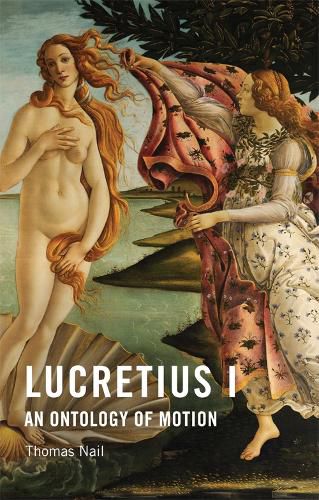Readings Newsletter
Become a Readings Member to make your shopping experience even easier.
Sign in or sign up for free!
You’re not far away from qualifying for FREE standard shipping within Australia
You’ve qualified for FREE standard shipping within Australia
The cart is loading…






The most original and shocking interpretation of Lucretius in the last 40 yearsThomas Nail argues convincingly and systematically that Lucretius was not an atomist, but a thinker of kinetic flux. In doing so, he completely overthrows the interpretive foundations of modern scientific materialism, whose philosophical origins lie in the atomic reading of Lucretius’ immensely influential book ‘De Rerum Natura’.This means that Lucretius was not the revolutionary harbinger of modern science as Greenblatt and others have argued; he was its greatest victim. Nail re-reads ‘De Rerum Natura’ to offer us a new Lucretius
a Lucretius for today.Key FeaturesA new materialist, quantum and feminist interpretation of LucretiusArgues the original and provocative thesis that Lucretius was not an atomist but rather the first philosopher of motionThe most profound revision of how we read Lucretius since Michel Serres’ ‘The Birth of Physics’ (1977)
$9.00 standard shipping within Australia
FREE standard shipping within Australia for orders over $100.00
Express & International shipping calculated at checkout
The most original and shocking interpretation of Lucretius in the last 40 yearsThomas Nail argues convincingly and systematically that Lucretius was not an atomist, but a thinker of kinetic flux. In doing so, he completely overthrows the interpretive foundations of modern scientific materialism, whose philosophical origins lie in the atomic reading of Lucretius’ immensely influential book ‘De Rerum Natura’.This means that Lucretius was not the revolutionary harbinger of modern science as Greenblatt and others have argued; he was its greatest victim. Nail re-reads ‘De Rerum Natura’ to offer us a new Lucretius
a Lucretius for today.Key FeaturesA new materialist, quantum and feminist interpretation of LucretiusArgues the original and provocative thesis that Lucretius was not an atomist but rather the first philosopher of motionThe most profound revision of how we read Lucretius since Michel Serres’ ‘The Birth of Physics’ (1977)